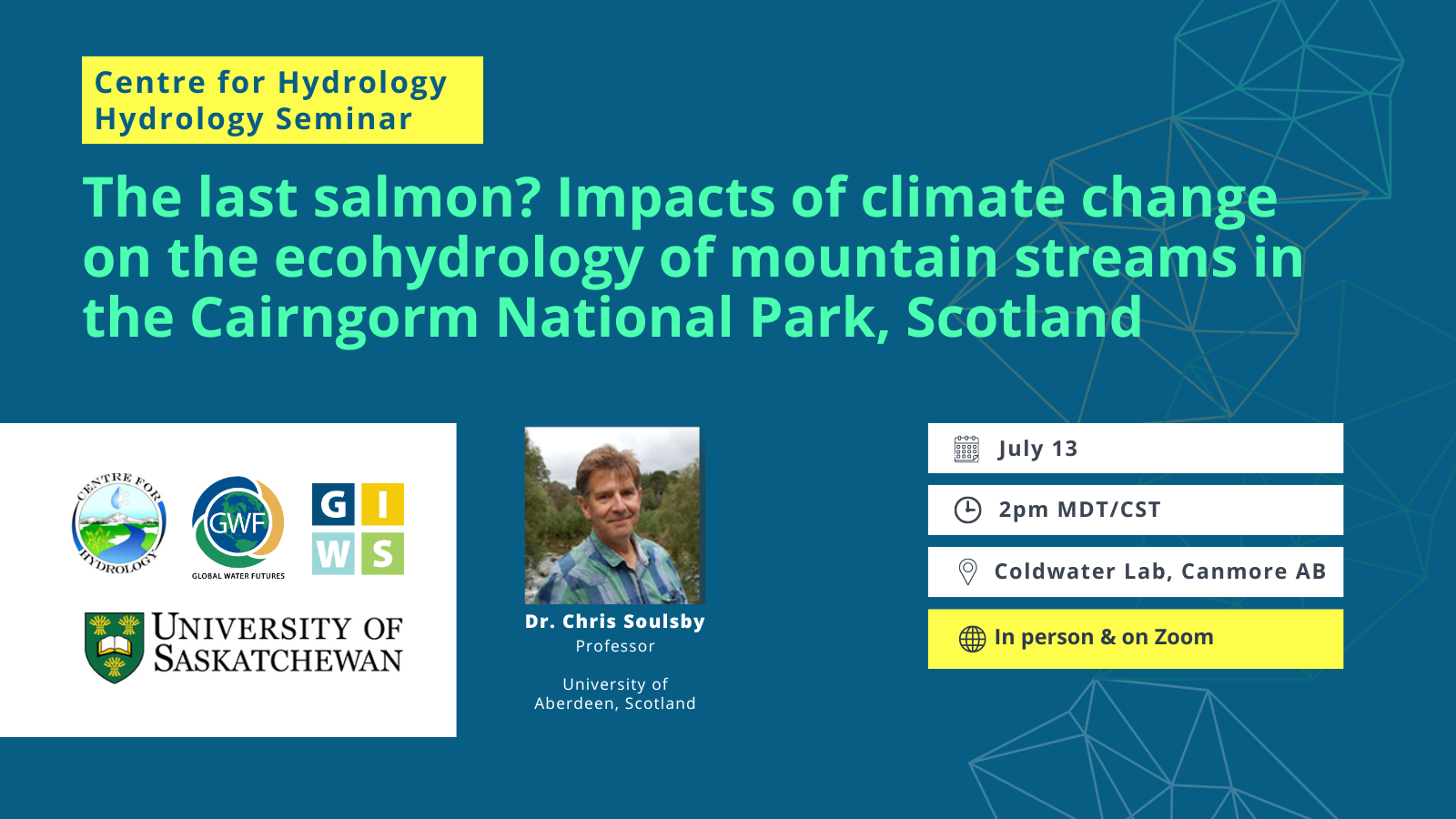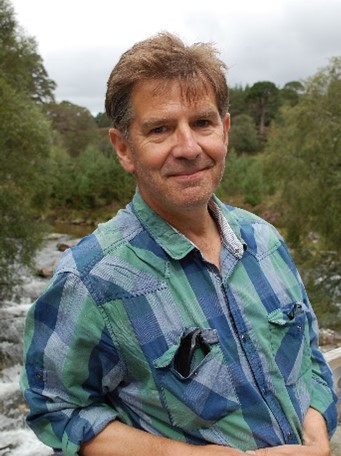Centre for Hydrology Seminar ft. Chris Soulsby
GWF Events
The last salmon? Impacts of climate change on the ecohydrology of mountain streams in the Cairngorm National Park, Scotland

Date: July 13, 2023
Time: 2:00 PM MDT/CST
Location: Coldwater Lab, Canmore, AB
In Person and on Zoom
(Registration required for Zoom)
Long-term data are crucial for understanding ecohydrological responses to climatic warming and land use change. As a migratory fish, Atlantic salmon are sentinels of both global and local environmental change. This talk highlights the main insights from six decades of research in Glen Girnock, an important Scottish salmon stream. The Girnock Burn started as a research site in the 1960s to provide a census of adult immigrants and juvenile emigrants of Atlantic salmon; as well as assessments of juvenile production within it. Early research provided new insights into the freshwater lifecycle of salmon, but crucially, studies showed the need for interdisciplinary “catchment science” approaches to understand how salmon interact with physical, chemical and biological components of their in-stream habitat at different life-stages. The work highlighted variations in catchment-scale hydroclimate, hydrology, geomorphology and hydrochemistry as essential to understanding in-stream habitats in the wider landscape context and how they respond to climatic variability. This has led to more integrated understanding of the ecological functioning of the Girnock that has been used to inform conservation and management of threatened Atlantic salmon stocks, which is particularly critical as a recent series of droughts and increasing stream temperatures are adversely impacting Scottish salmon populations.
 Dr. Chris Soulsby
Dr. Chris Soulsby
Professor
University of Aberdeen, Scotland
Chris Soulsby is Professor of Hydrology at the University of Aberdeen, Scotland. With thirty years research and teaching experience, Chris is widely recognized as one of the world’s leading tracer hydrologists. His interdisciplinary research has a central aim of developing a holistic understanding of the hydrology, biogeochemistry and ecology of catchments to provide an evidence base for their sustainable management. He has been working extensively on water storage – flux – age interactions in contrasting and often extreme climates and environments such as the tropics, arid regions, urban settings, as well as boreal and permafrost environments. He is known in the field for using novel stable isotope observation methods and integrating these with tracer-aided models of different complexity. Specific foci are integrating isotopic tracers in ecohydrological models to understand the controls on water partitioning, runoff generation and biogeochemistry; the influence of hydrological dynamics and groundwater hydraulics on riparian, in-stream and hyporheic ecology (especially salmonids); and understanding how these fundamental processes are affected by land use change and climate change. He received is BSc from the University of Northumbria, Newcastle, his PhD from the University of Wales and his DSc from the University of Aberdeen (all UK). He is elected Fellow of the American Geophysical Union, Fellow of the Royal Society of Edinburgh and Fellow of the Einstein Foundation, Germany.
Event Details
- When:
- Time:
- 02:00 PM - 03:00 PM CST
- Location:
- Coldwater Lab (Canmore) & Zoom
